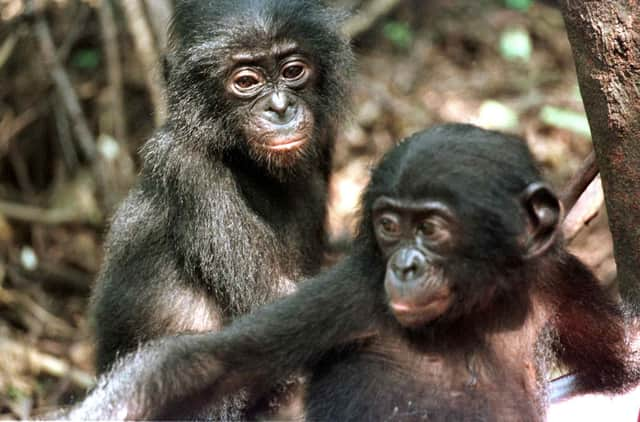Friends and family: Apes recognise photos of loved ones after decades apart, study suggests


Apes can recognise photos of friends and family they have not seen for more than 25 years, with some even responding enthusiastically to pictures. This shows the longest-lasting social memory ever documented outside humans, researchers say.
Professor Christopher Krupenye, from Johns Hopkins University, said it suggested not just familiarity, but that the primates keep track of the nature and quality of specific relationships. He said: "This work clearly shows how fundamental and long-lasting these relationships are. Disruption to those relationships is likely very damaging."
Advertisement
Hide AdAdvertisement
Hide AdProfessor Krupenye's team began researching apes' memories after sensing they recognised them, sometimes even after a long absence. The team worked with chimpanzees and bonobos at three zoos around the world, including Edinburgh Zoo, and collected photos of apes that had either left or died, as well as the relationships they had.
They showed the pictures to apes who hadn't seen their friends or family in at least nine months, where the researchers used eye-tracking to judge their interest in them
The apes looked significantly longer at former group mates, no matter how long they'd been apart.
A bonobo who took part in the study, Louise, hadn't seen her sister Loretta or nephew Erin for more than 26 years and showed a particular interest in photos of them both.
Advertisement
Hide AdAdvertisement
Hide AdLead author Laura Lewis, from the University of California, said the study's results were comparable to how relationships shape the memories of humans. She said: "The idea they do remember others, and therefore they may miss these individuals, is really a powerful cognitive mechanism and something that's been thought of as uniquely human."
The researchers hope the findings will provide new information on how deeply affected apes could be when poaching and deforestation separate them from their friends, and how these long-lasting social memories are exclusive to great apes - or something other primates experience, and if they have similarly lasting memories for experiences as well as individuals.
The peer-reviewed findings have been published in the Proceedings of the National Academy of Sciences journal.
Comment Guidelines
National World encourages reader discussion on our stories. User feedback, insights and back-and-forth exchanges add a rich layer of context to reporting. Please review our Community Guidelines before commenting.
